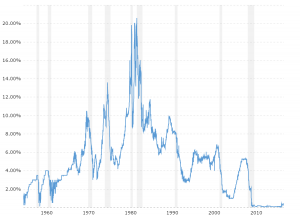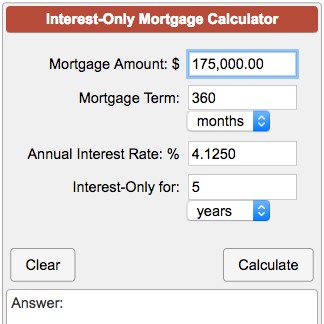A Home Loan Money Flow Obligation (MCFO) is a kind of mortgage pass-through unsecured general obligation bond that has several classes or tranches. MCFOs utilize cash flow from a pool of home mortgages that generate earnings to repay investors their principal plus interest. Payments are received from home mortgages in the pool and handed down to holders of the MCFO security.

MCFOs do not hold a lien on the home loans held by the security. They are merely obligated by contract to use the income from the home loans to pay their financiers. MCFO owners have no legal rights to the actual underlying home mortgages, thus MCFOs are riskier than CMOs. Like CMOs, MCFOs are a type of mortgage-backed security developed through the securitization of individual domestic mortgages that draw interest and primary payments from that specific pool of mortgages.
Like CMOs, MCFOs plan home loans into groups with various payment qualities and run the risk of profiles called tranches. The tranches are paid back with home mortgage principal and interest payments in a specified order, with the greatest ranked tranches including credit enhancement, which is a kind of security against prepayment danger and repayment default.

The stated maturities of MCFO tranches are figured out based upon the date when the last principal from a pool of mortgages is expected to be paid off. But maturity dates for these types of MBS do not take into consideration prepayments of the hidden home loan and therefore may not be an accurate representation of MBS dangers.
CMOs, MCFOs and other non-agency mortgage-backed securities those home loan bonds not backed by the government-sponsored enterprises Fannie Mae, Freddie Mac or Ginnie Mae - were at the center of the monetary crisis that led to the personal bankruptcy of Lehman Brothers in 2008 and led to trillions of dollars in losses on home loan and countless homeowners losing their houses to default.
In December 2016, the SEC and FINRA revealed new guidelines to moisten MBS risk with margin requirements for CMO and associated MBS transactions.
Get This Report about How Many Lendors To Seek Mortgages From
A mortgage swimming pool is a group of mortgages held in trust as security for the issuance of a mortgage-backed security. Some mortgage-backed securities issued by Fannie Mae, Freddie Mac, and Ginnie Mae are referred to as "swimming pools" themselves. These are the most basic type of mortgage-backed security. They are also referred to as "pass-throughs" and trade in the to-be-announced (TBA) forward market.
Home mortgage pools, which are groups of home loans, tend to have similar qualities, such as issuance date, maturity date, etc. While mortgage-backed securities are backed by home loan security with comparable characteristics, collateralized debt commitments are backed by security with differing characteristics. An essential benefit of home loan pools is that they provide investors with diversification.
Mortgage pools are consisted of home mortgages that tend to have comparable characteristicsfor circumstances, they will usually have near the exact same maturity date and rates of https://www.prweb.com/releases/2012/8/prweb9766140.htm interest. As soon as a lender completes a mortgage transaction, it normally offers the home loan to another entity, such as Fannie Mae or Freddie Mac. Those entities then package the home loans together into a home mortgage swimming pool and the mortgage swimming pool then acts as security for a mortgage-backed security.
A CDO is a structured monetary product that pools together money flow-generating properties and repackages this possession pool into discrete tranches that can be offered to investors. A collateralized debt obligation is called for the pooled assetssuch as home loans, bonds and loansthat are essentially financial obligation commitments that work as collateral for the CDO.
Home loan pool funds benefit financiers looking for property exposure due to the fact that they are a low-risk financial investment that moves separately of a stock and bonds and offer a predictable month-to-month earnings. Home mortgage pool fund loans are secured by genuine estate and are described as difficult cash since unlike the majority of bank loans (which count on the credit reliability of the debtor), difficult cash loans think about the value of the underlying residential or commercial property.
Since of their much shorter terms, hard money loans are less vulnerable to being impacted by rate of interest swings, which indicates it is a more predictable and trustworthy cash flow. Like mentioned above, home mortgage pool funds differ, where some concentrate on particular home types, while some are more basic. These distinction can affect threat and return, so it is crucial to investigate the different mortgage swimming pools prior to diving in.
The Single Strategy To Use For What Are All The Different Types Of Mortgages Virginia
There's nothing better than stepping out your back door on a hot summertime day and jumping in your own pool. But take care when looking to purchase or re-finance a home with a swimming pool. That swimming pool can cause delays in the home loan procedure, or drown your loan application entirely.
Stubrud dealt with a client who desired a reverse mortgage, however had an empty, aging swimming pool on the property. Reverse mortgages follow FHA standards, which are particular about swimming pools. "They don't desire it to be a health threat or a safety hazard that there's a huge open hole in the ground." So what did the customer do? "How they handled it was that they filled it in," states Stubrud.
The swimming pool stopped to exist. There were no other alternatives for this aging homeowner who didn't have the money to get the swimming pool in working order. However Stubrud states the customer did bring up an alternative idea. "They in fact wished to keep it and they were going have this subterranean greenhouse.
Many property owners believe that what's on your property is your organization. While that's partly real, you invite examination to almost every inch of a house when you choose to finance it with the lending institution's cash. It's real for FHA loans as well as any other loan type. It boils down to safety.
A pool that is a falling danger or is a breeding place for germs is a hazard to the health of the occupants. Not to mention it opens the property owner up to lawsuits (blank have criminal content when hacking regarding mortgages). The very same standards would apply to things like a missing stairs outside the back door, missing out on hand rails, or exposed lead-based paint.
Fixing the swimming pool to get it into working order will enable the loan procedure to continue. When buying a house, this could be a predicament. It's dangerous to use your own funds to make repairs on a home that's not yours yet specifically pool repair work which can range from a few hundred to a few thousand dollars - why is there a tax on mortgages in florida?.
How Common Are Principal Only Additional Payments Mortgages Fundamentals Explained
There may be another method to make repairs, nevertheless. "The debtor will require to obtain a quote for the essential repairs," states Sarah Bohan, VP of Corporate Relations at MSU Federal Credit Union. "If the repairs are scheduled to happen after the closing, the loan provider will Great post to read normally request to hold 1.
You receive back any money left over after whatever's done. However do not rely on this solution, states Bohan. "Numerous loan providers are not able to enable repair work after the mortgage closes because they sell their loans on the secondary market and need to deliver the loan within a set timeframe." Make certain your loan provider permits repair work after closing prior to you consent to buy a house with a shabby swimming pool.